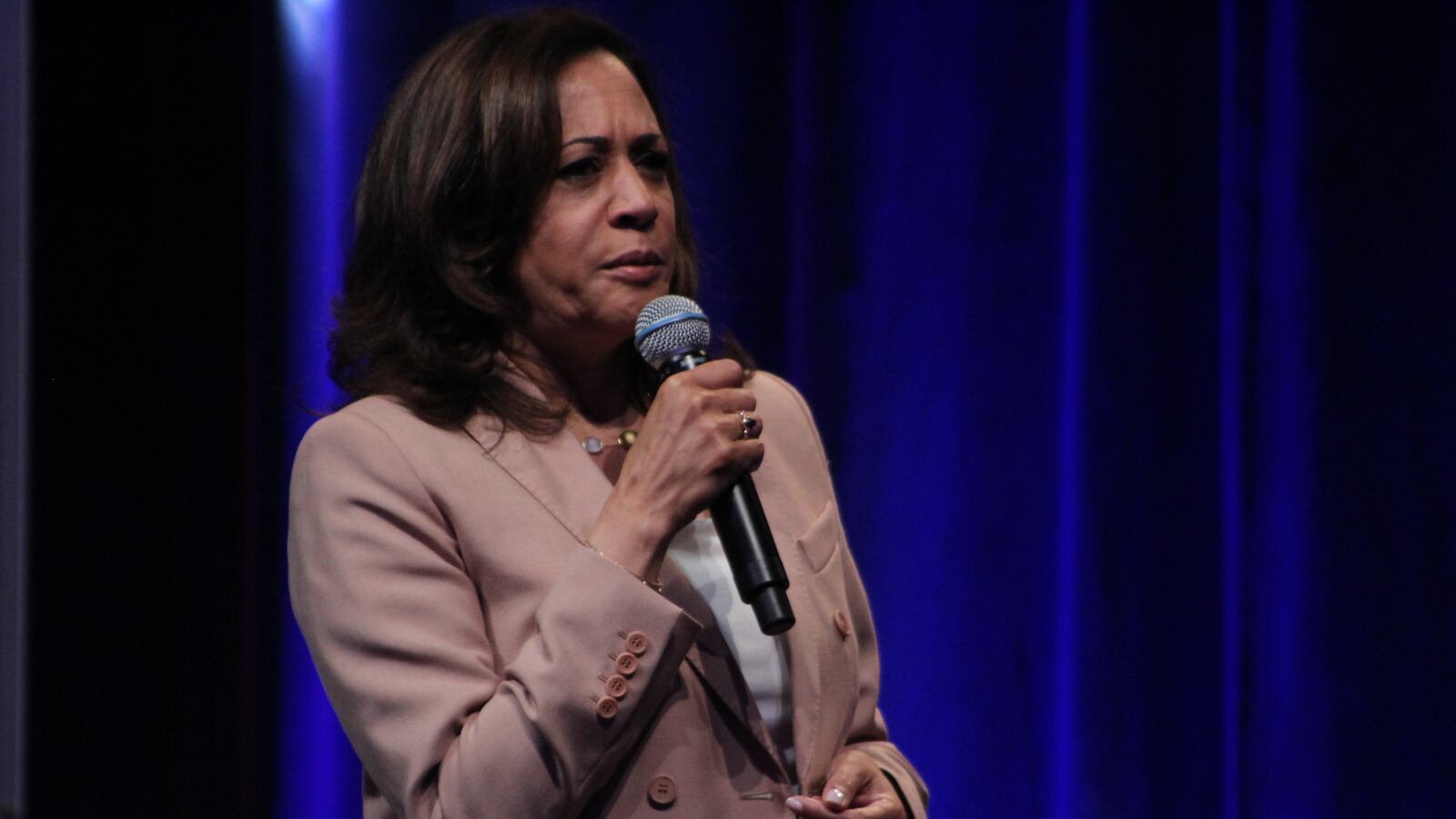Presidential candidate Kamala Harris proposed Friday infusing $2.5 billion into teacher preparation programs at historically black colleges and universities to help produce more educators of color.
The California senator also pledged $60 billion for scholarships and facilities to boost science, technology, engineering, and math studies on those campuses.
Harris was among four Democratic presidential candidates speaking to the National Urban League’s annual conference in Indianapolis. Five other candidates spoke Thursday.
Harris previously promised to improve teacher diversity, increase teacher salaries, and expand pre-kindergarten access. But her promise to funnel new dollars to historically black colleges and universities, or HBCUs, on Friday represents one of her first concrete takes on how to diversify the teaching profession. She did not specify how her proposals would be funded.
Diversity among teachers matters because the education workforce hasn’t kept pace with changing student demographics, and because of the demonstrated benefits students gain in learning from teachers who look like them.
“We can’t write the next chapter without remembering the last one,” Harris said while speaking on a stage inside the Indiana Convention Center. “We’re going from when the doors to many of our country’s prestigious colleges excluded our community to new investments that will educate the next generation of black leaders.”
While the number of teachers of color in public schools has increased by 150% in the last three decades, so has student enrollment. Thus teaching remains a majority-white profession overall, according to federal data. In 2015-16, 80% of public school teachers described themselves as white.
It’s a challenge that many districts across the country are working to address. Chicago Public Schools, for instance, launched a teacher residency program to encourage teachers aides and paraprofessionals, a group that tends to be more concentrated with people of color, to advance to full-time teaching. The district also looked to its diverse student populations, kick-starting teaching academies at area high schools designed to prepare young people for a career in education.
By hiring more teachers of color, Harris said, communities would be better equipped to close achievement and wealth gaps because young students would develop trusting relationships that can encourage them to pursue higher education, entrepreneurship, and other meaningful goals.
But some educators note that the solution isn’t that simple.
“It sounds good to invest in HBCUs, but a lot of them don’t even have [teacher prep] programs anymore,” said Racquel Armstrong, a former assistant high school principal from Cleveland who was at the conference after Harris’ speech. “There needs to be investment in teacher prep programs across the board, HBCU or otherwise.”
Armstrong said teacher preparation programs need an across-the-board overhaul so that more provide diversity and bias training.
This isn’t the first time Harris has proposed ways to better incentivize educators. She was one of the first candidates to introduce a comprehensive plan to raise teacher pay when she pledged to use federal funds to increase teacher salaries by an average of $13,500.
Three other candidates spoke at the event: U.S. Sen. Kirsten Gillibrand of New York, South Bend Mayor Pete Buttigieg, and conservative documentary filmmaker Ami Horowitz, who has publicly said he aims to disrupt the Democratic Party. Each candidate, interviewed separately, touched on education in their remarks:
- Buttigieg focused on streaming more Title I funding to low-income schools and combating student debt so that more young people can go to college without living “under the pressure of six-figure student debt, like so many in this country.”
- Gillibrand emphasized the need to fully fund public schools, and pledged additional dollars for areas like special education and pre-K. She also pushed for holding a broader conversation about disparities in student debt, noting that black women “have the most student debt in America,” and suggested giving free community college to students willing to participate in public service for at least one year.
- Horowitz framed his opening speech around how communities of color have been disenfranchised through education, charging that the Democratic Party has done little to “live up to their side of the covenant” to help children from low-income families of color attend quality schools by opposing the expansion of charter schools and aligning with teachers unions. That, he said, amounts to “an educational disaster for the black community.”

